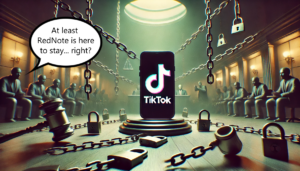In this week’s GME3 we have some reactions to the AGCO’s new regulations around gambling advertising, updates on the many X lawsuits, and an overview of the Unity scandal dominating the video gaming industry. Read on for more!
Gambling
AGCO Chips Away at Ads
Last week the AGCO released revised standards related to the marketing of regulated gaming operators in Ontario. If you missed it, in a nutshell, the AGCO aims to prevent advertisements that may be enticing to minors or high-risk players. They aim to do this by prohibiting the use of social media influencers, celebrities, and athletes in advertising (except for in responsible gambling messaging).
Tom Mungham, the (soon-to-be former) registrar and CEO of the AGCO, says that he believes the Commission found a good balance in these amended standards. Most operators are unsurprised by the new standards, and as PointsBet Canada’s CCO Nic Sulsky said, “The anxiety of not knowing caused more stress than the actual standards that have been released.” Canadian Gaming Association president Paul Burns noted that operators have generally been compliant with the AGCO’s responsible gambling standards (with a few exceptions).
Rivalry CEO Steven Salz noted that, historically, the majority of traditional betting advertisements have relied very heavily on celebrity and athlete endorsements, and is concerned that the new restrictions will benefit black-market operators in Ontario. As he said:
“.. the AGCO is handing [influencers] on a silver platter to the offshore guys as they have none of these restrictions. Influencers don’t get punished for it, and they’re going to take the bigger cheque from some of the larger offshore operators and promote the services into Ontario.
However, some like Senator Marty Deacon, co-author of Bill S-269 (An Act respecting a national framework on advertising for sports betting) think that the AGCO’s new standards don’t go far enough. She insists that a national framework for gambling advertising is necessary, and the regulations should not differ between the provinces.
There’s a lot of change happening at the AGCO between these new advertising standards and the retirement of Tom Mungham later this fall. We at GME Law will be monitoring the situation closely, so be sure to follow us on LinkedIn to stay up to date on all Ontario gambling news!
Media
Legal X-posure
On July 20th of this year, X sent a letter to the Center for Countering Digital Hate (CCDH), a nonprofit that aims to stop the spread of online hate and disinformation through research, public campaigns and policy advocacy. In the letter, X accuses the organization of making “a series of troubling and baseless claims that appear calculated to harm Twitter generally, and its digital advertising business specifically.” As a result, X (then still called Twitter) was threatening legal action.
This was a result of the CCDH’s claims that X failed to address ~86% of the 300 incendiary posts that were flagged earlier this month for promoting hate. This includes promoting White supremacy, neo-Nazism, antisemitism, and racism. Of the 100 accounts that were studied, 90 remain active.
X is also threatening to sue the Anti-Defamation League (ADL) for, ironically, defamation. X claims that the ADL’s statement on increasing hate speech on their platform has tanked advertising revenue. Elon Musk claims that X’s ad revenue is down 60% “primarily due to pressure on advertisers by @ADL”.
X is also suing the government of California over Assembly Bill 587. The bill requires social media companies to disclose policies regarding what users are allowed to post on their platforms and how the company will respond if rules are violated. X claims that this law violates the First Amendment right to free speech by forcing companies to moderate “constitutionally protected” free speech that the state finds harmful.
While Elon Musk defends his platform vehemently, the statistics presented by CCDH paint a different picture. Will these lawsuits lead to a more responsible social media landscape, or will they simply generate more legal paperwork? Only time will tell. Hopefully we at GME won’t be the next to be sued by the social media company.
Entertainment
Unity’s Fee-ling the Heat
Unity, the makers of the extremely popular Unity Engine, have stirred up some controversy in the video gaming world this week by making big changes to its pricing structure. The change involves what they’re calling the “Unity Runtime Fee” where developers are charged a flat fee anytime a game using Unity software is installed.
Before being subject to fees, a game must meet certain revenue and download requirements, based on the tier of Unity subscription that the developer has access to. For example, the lowest tier has a threshold of $200,000 in revenue and 200,000 installs, while the highest has a threshold of $1,000,000 and 1,000,000 installs. These thresholds will be tracked retroactively, but fees will only apply for installs that occur after January 1, 2024.
The game development community was outraged by this news, with the fear that these fees would disproportionately affect small indie developers. Furthermore, basing the fees on installs is a strange approach – illegal pirating, game demos, and downloading games on multiple devices will all lead to inflated install numbers without generating any revenue for the developers. There are also concerns that this could be used maliciously to harm developers by intentionally installing games multiple times to run up Unity fees.
As a result of this, Unity’s stock prices have taken a significant dip – luckily Unity executives had the foresight to sell thousands of shares in the company’s stocks in the weeks leading up to the announcement. CEO John Riccitiello personally sold 2,000 shares on September 6, just a week before the changes were announced on September 12.
Developers are incensed about the change and have taken to X, with some asking people not to install their games, and others announcing that their games will be taken off the market after the change goes into effect in the new year.
GME Law is Jack Tadman, Zack Pearlstein, Lindsay Anderson, and Will Sarwer-Foner Androsoff. Jack’s practice has focused exclusively on gaming law since he was an articling student in 2010, acting for the usual players in the gaming and quasi-gaming space. Zack joined Jack in September 2022. In addition to collaborating with Jack, and with a keen interest in privacy law, Zack brings a practice focused on issues unique to social media, influencer marketing, and video gaming. Lindsay is the most recent addition to the team, bringing her experience as a negotiator and contracts attorney, specializing in commercial technology, SaaS services, and data privacy.
At our firm, we are enthusiastic about aiding players in the gaming space, including sports leagues, media companies, advertisers, and more. Our specialized knowledge in these industries allows us to provide tailored solutions to our clients’ unique legal needs. Reach out to us HERE or contact Jack directly at jack@gmelawyers.com if you want to learn more!
Check out some of our previous editions of the GME3 HERE and HERE, and be sure to follow us on LinkedIn to be notified of new posts, keep up to date with industry news, and more!




